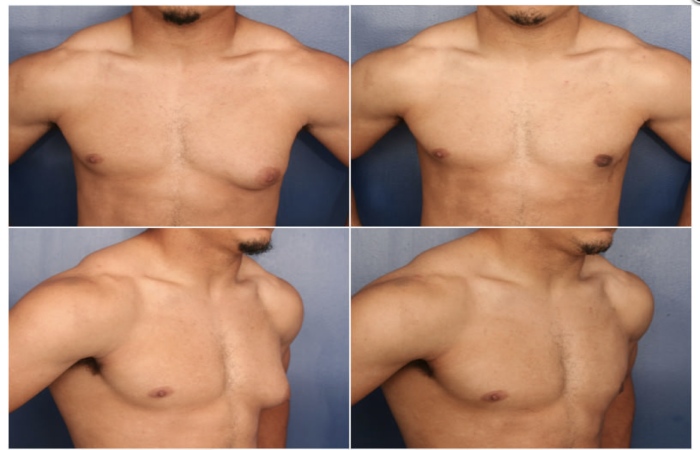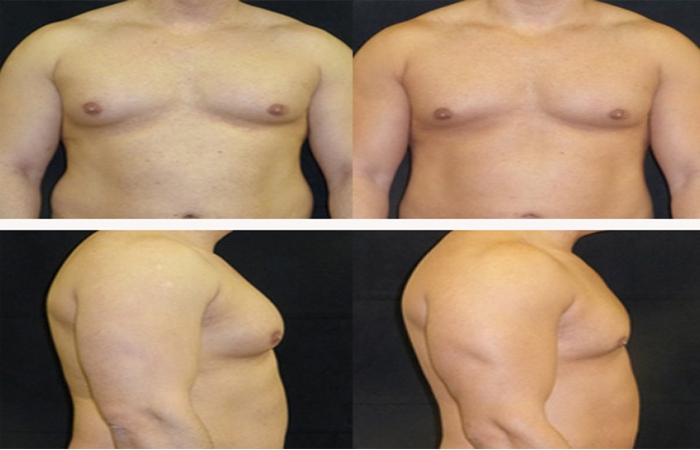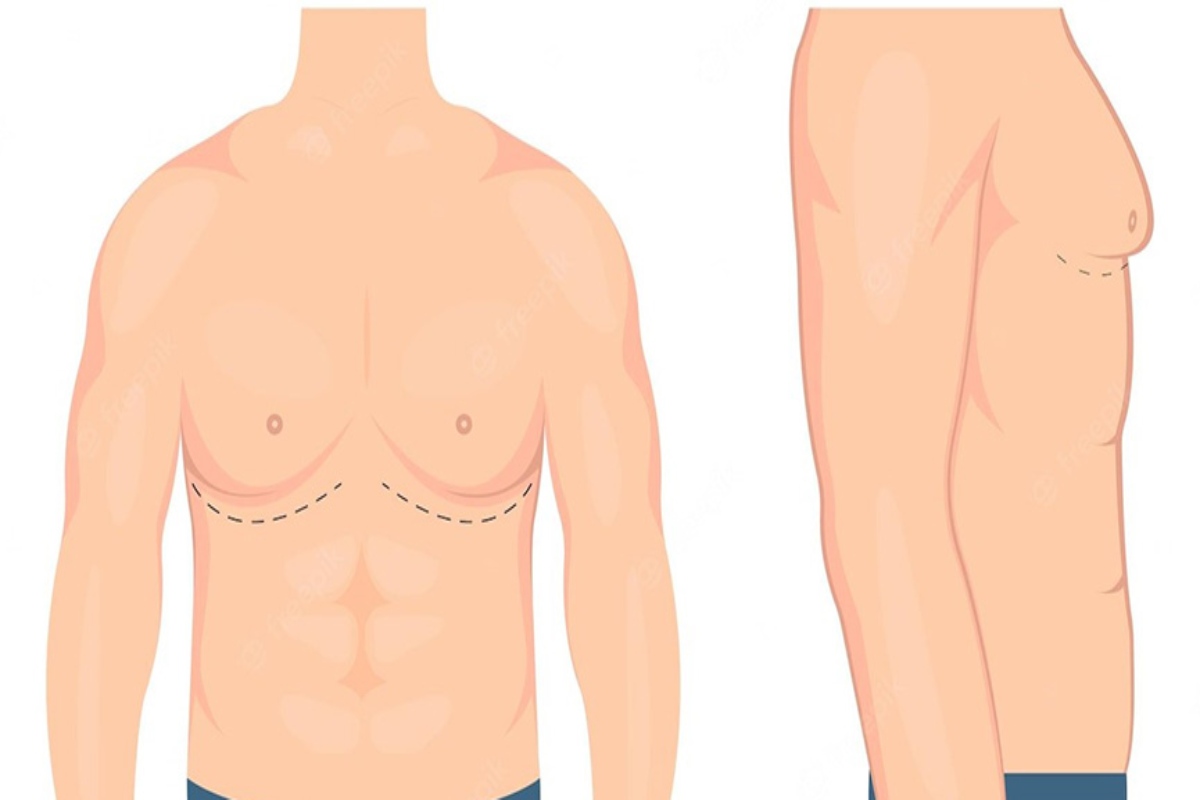The average cost of gyno surgery is $4,239, according to the most recent data from plastic surgeons in American society.
The average cost does not include the cost of your surgeon, operating room services, out-of-pocket expenses, anesthesia cost, the hospital or surgical facility, or other related expenses; it is only part of the total price. Please refer with your plastic surgeon’s office to determine your final cost.
A surgeon’s fee will be based on their experience with gynecomastia surgery, the type of procedure the surgeon uses, and the geographic office site.
Male breast reduction or its complication does not covered by most health insurance plans. But patient financing plans offer many plastic surgeons, so be sure to ask.
Table of Contents
Gynecomastia Intervention

Accumulation of fat is the reason that increases the volume of the breasts in men. There are many other causes, such as excessive and abnormal mammary gland development, which usually atrophies in men and does not happen.
- To determine the origin of breast development, the patient must undergo a mammogram and an ultrasound of the breasts.
- Based on their results, we will know if it is excess fat or fatty tissue or excess breast tissue due to the mammary glands’ development, and we will be able to determine the most appropriate technique for your particular case.
- Patients undergoing Gynecomastia must have some prior precautions (which the surgeon will explain to you in the personalized consultation) days before the surgical operation.
- Usually, Gynecomastia male cosmetic surgery is outpatient (without spending the night in the hospital) and lasts between one and two hours.
Symptoms of Gynecomastia
Following are the Symptoms you may be experiencing with Gynecomastia:
- Swollen, enlarged, and drooping breasts.
- Sensitive chest area.
- Stretched areoles.
- Asymmetrical breasts or with different shapes and sizes
- Mobile tissue and Fibrous under the nipple.
Treatment for Gynecomastia
When Gynecomastia causes puberty, the indication of specialists is to wait a year. The preceding is because, according to the expert, most cases of pubertal Gynecomastia occur due to a hormonal disorder that usually regulates itself.
On the other hand, if, after a year, the problem continues, the indication is surgical. After a year, if there is the perseverance of the mass or pain, the truth is that there is an indication for surgery because there is a gland fibrosis that will prevent it from shrinking ultimately, that it will not involute.”
The surgery consists of two elements, firstly, the epithelial component is decreased, resecting a large part of the gland through a peri-areolar cut, and, secondly, the amount of fat in the thorax is normalizing through Liposuction in children who have an associated fatty component. The expert is emphatic in ensuring that it is essential not to remove the entire mammary gland from the patient since it can cause the opposite effect and leave the area umbilicated.
Once operated, the patient remains hospitalized until the next day and is likely left with a bit of pain and bruising in the chest, which lasts about two weeks. In addition, specialists prescribe a compression suit so that the skin becomes attached to the rest of the thorax, and they can return to sports activity after two to three weeks.
Types of Gynecomastia

Before discussing the many types of gynecomastia surgery, we must first discuss the various types of gynecomastia conditions. They are the following:
Normal Gynecomastia
It is usually seen in adolescents (12-16 years) and older men (over 65) and is caused by decreased testosterone levels; it usually regresses naturally, so gynecomastia surgery is rarely needed.
Glandular Gynecomastia
It is drug-induced and common in bodybuilders; gynecomastia reduction surgery (especially gynecomastia surgery with gland removal) recommend.
Adolescent gynecomastia
It affects around 40-60% of male adolescents, although it usually resolves independently, eliminating the need for male chest plastic surgery.
Adult gynecomastia
It is the most prevalent variety of this condition in adults, where extra fat accumulates in glandular tissue; in this case, doctors often recommend surgery to treat the Gynecomastia.
Pseudo gynecomastia
It is a condition in which fatty tissue accumulates instead of glandular tissue; Popular treatments include Liposuction (male chest fat reduction surgery), diet, and gynecomastia male breast reduction surgery.
Asymmetric Gynecomastia (unilateral Gynecomastia)
The most appropriate cure is gynecomastia plastic surgery when it affects only one breast, creating disproportion and asymmetry.
severe Gynecomastia
It occurs in men whose skin has lost elasticity and a significant amount of weight, characterized by a large amount of loose skin that makes the breasts appear larger; only gynecomastia surgery is helpful in such circumstances.
Types of Gynecomastia Surgery
Depending on the type of Gynecomastia, a surgeon may recommend one of the types of gynecomastia surgery:
Bilateral gynecomastia surgery
The removal of both breasts involves Bilateral gynecomastia surgery. Most patients have bilateral Gynecomastia, and this is the most common procedure.
Unilateral Gynecomastia Surgery
Unilateral gynecomastia surgery is quite rare. According to the data, only 5-10% of men have unilateral Gynecomastia. As a result, male breast asymmetry is outward. The cost of unilateral gynecomastia surgery, diagnosis, and treatment are identical to those of bilateral Gynecomastia.
Gynecomastia laser surgery
Laser surgery for Gynecomastia is another option that can recommend to patients. It is useful when Gynecomastia is caused or worsened by fat gain. Laser liposuction precisely destroys and removes fat cells from the breast, chest, and occasionally the belly or flanks to restore body proportions and sculpt the contours of the chest.
Male breast liposuction
To treat pseudo-gynecomastia, Liposuction of the male breast uses. In other words, it removes excess fat in male breast liposuction, making breasts saggy, prominent, and disproportionately large. Depending on the technique used, the cost of male breast liposuction determines.
Conclusion
Many men have benefited from its results as a clinically proven treatment for pseudo-Gynecomastia. While this is undoubtedly good news for those suffering from the condition, remember to exercise due diligence in research when seeking help.

